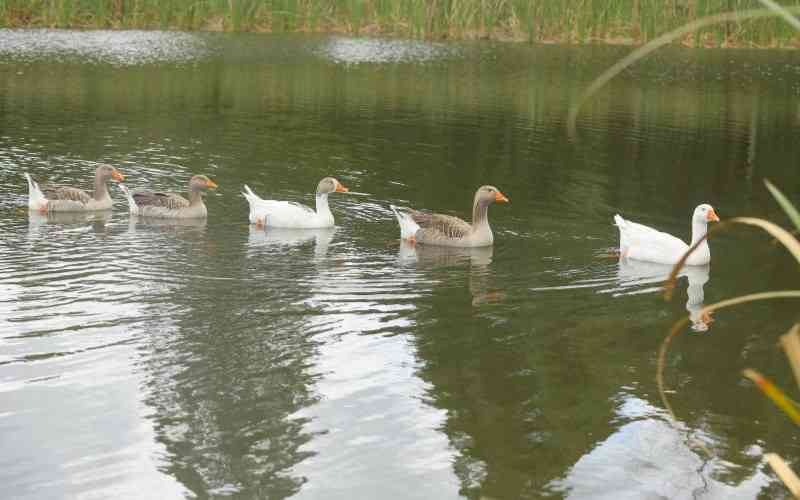
Ducks swim at Nyansiongo water dam [Sammy Omingo, Standard]
Ducks are aquatic birds that prefer freshwater life. Their distant cousins include geese, pochards, and teals. In Kenya, duck rearing for meat is not common as few people have a preference for their dark and tough meat. The most common breeds include Peking, Muscovy, and Rouen which belong to the Anatidae family. Rouen and Khaki are beautiful and are highly looked for, majorly kept as ornamental. Their fertilised eggs hatch in 28 days into lovely ducklings that are left to roam in the compound.